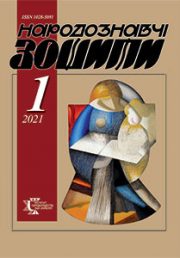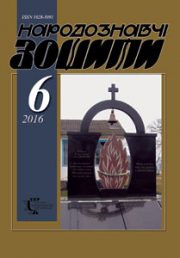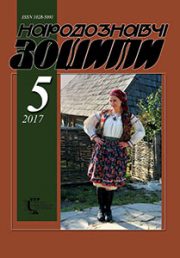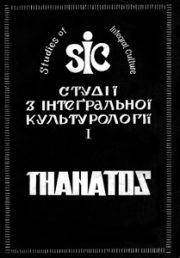The Ethnology Notebooks. 2019, № 3 (147), 758—766
UDK 94:[329.15-026.87:338.4](477.84)”1939/1941″
DOI https://doi.org/10.15407/nz2019.03.758
KRAVCHUK Leonid
ORCID ID: https://orcid.org/0000–0002–0805–6709
Ph.D, Associate Professor of the Department
of Pedagogy of the Higher School and
Social Sciences of the I.Ya.Horbachevsky
Maydan Volya, 46002, Ternopil, Ukraine
Contacts: е-mail: kravchuklv@tdmu.edu.ua
Abstract. With the collapse of the Soviet Union, communist slogans, holidays and other paraphernalia fell into oblivion. The proposed article reveals the devastating, inhuman nature of the communist socio-political, socio-economic life of the political system of the Stalinist regime in the occupied territories on the eve of the Soviet-German collision. Sovietization of Ternopil took place simultaneously with the elimination of Poland by destroying democratic European values, with the rigorous implantation of Stalin’s party-state policy, aimed at establishing an authoritarian administrative command-and-control system in the western Ukrainian region.
The term «sovietization» should be understood as the forcible introduction of norms and patterns, methods and forms of socio-political, socio-economic, and cultural-spiritual life characteristics of the totalitarian regime of the USSR. The main features of Sovietization are the use of military forces at the initial stage of its implementation; formation of administrative-command control system; authoritarian interference of the Communist Party organs in all spheres of life of the region; nationalization of industry and collectivization of agriculture. On the basis of nationalized industrial, financial, commercial and municipal objects, state enterprises were formed. The struggle against the communist system continued in the 70’s and 80’s, and the creation of the Ukrainian People’s Movement and other political and civil organizations accelerated the collapse of the Soviet empire in 1991.
By building up the independence of the Ukrainian state, the Verkhovna Rada of Ukraine in 2015 adopted the law «On the conviction of communist and national-socialist (nazi) totalitarian regimes in Ukraine and the prohibition of the promotion of their symbols». This archival document confirmed the right to a national idea and the condemnation, the opening of historical and political archives, the study of the totalitarian heritage and raising public awareness.
Keywords: сommunism, nationalization, Soviet power, peasant, rural economy, private property, industry, planning, accounting.
Received 27.05.2019
REFERENCES
Babiy, B.M. (1959). Reunification of western Ukraine with the Ukrainian SSR. Kyiv: Vyd-vo AN URSR [in Ukrainian].
Rudnytska, Milena. (Ed.). (1958). Western Ukraine under the Bolshovykami. IX.1939—VI.1941. Journal of articles. New York [in Ukrainian].
Slivka, I. (Ed.). (1989). Reunification of Western lands with Soviet Ukraine. Kyiv: Naukova Dumka [in Ukrainian].
How to live workers, Shevttsi for Polish domination (1939, 30 september). Stalins’kym shliakhom, 3 [in Ukrainian].
The twentieth Congress of the CPSU without a mask. (1956). Publication of foreign Parts OUN [in Ukrainian].
Bryl, M. (1940). Exempt Western Ukraine. Moscow [in Russian].
Nechai, S.P. (Ed.). (1973). History of cities and villages of the USSR: in 26 vol. (Vol. XIX): Ternopilska Oblast. Kyiv: Instytut istorii AN URSR [in Ukrainian].
Ivasyuta, M.K. (Ed.). (1976). From the history collectivization agriculture of western regions Ukrainian SSR. Collection of documents and materials. Kyiv: Naukova dumka [in Ukrainian].
Yarosh, B.O. (1995). Totalitarian regime at Western. 30th—50s 20th century (historical-political-logical aspect). Lutsk: Nadvirna [in Ukrainian].
Essays on the history of Ternopil regional party organization (1980). Lviv: Kamenyar [in Ukrainian].
Zhyla, V. (Ed.). (1980). Zbarazh. A collection of articles, materials and sporadic (Vol. 1). New York; Paris; Sydney; Toronto [in Ukrainian].
State Archive of Ternopil Region, further (DATO). F. P-1. Op. 1. Spr. 5. Decree of the Tarnopolish Committee of the State ENTERPRISE (b) of January 3, 1940 «on the process of nationalization of industrial enterprises and residential buildings in the city of Tarnofield» (Ark. 6—7) [in Ukrainian].
DATO. F. R-9. Op. 1. Spr. 105. Resolution of the Presidium of the Tarnopol City Council dated March 19, 1940. Consideration of applications on the incorrect nationalization of property» (Ark. 86—87) [in Ukrainian].
DATO. F. R-1833. Op. 6. Spr. 6. The decision of the Tarnopolish Regional Executive Committee of January 25, 1940 «on nationalization, accounting and preservation of public funds on Borshchiv County» (Ark. 6—7) [in Ukrainian].
DATO. F. P-1. Op. 1. Spr. 5. Decree of the Tarnopolish Committee on (b) in January 13, 1940. On the Facts of survey of property of monks s. Mykhaylivka, Borschevsky area» (Ark. 24) [in Ukrainian].
DATO. F. R-9. Op. 1. Spr. 105. Resolution of the Presidium of the Tarnopolish City Council dated 13 January 1940 «on approving the lists of houses belonging to the nationalization» (Ark. 154—156) [in Ukrainian].
DATO. F. P.-1. Op. 1. Spr. 3. Transcript of the first regional party conference on 23—25 April 1940 (Ark. 1—159) [in Ukrainian].
Filippov, M.M. (1901). Encyclopaedic dictionary: in three volumes (Vol. II). St. Petersnurg [in Russian].
Pavlenkov, F. (1913). Encyclopaedic dictionary. S. Peterburg [in Russian].







